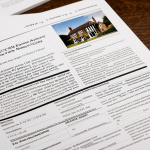Decoding the UK Mortgage Process
Understanding the UK mortgage process is crucial for a smooth home-buying experience. The journey broadly covers several mortgage steps, starting from initial application through to offer acceptance and completion. Typically, it begins with submitting a mortgage application, followed by an affordability assessment where lenders review income, credit history, and other financial details.
A key stage is the property valuation, ensuring the home’s value supports the loan amount. Then comes the formal mortgage offer, which, once accepted, leads to legal conveyancing and finally completion, where funds transfer and ownership changes hands.
This might interest you : Tapping into wealth: a guide for uk property investors to maximize government incentives and grants
Expect this full process to range from four to eight weeks, although delays can happen if documents or checks are incomplete. Financial considerations include upfront costs such as arrangement fees, survey fees, and the deposit, alongside ongoing repayments.
Several parties play pivotal roles: mortgage brokers, lenders, surveyors, and solicitors. Each ensures different aspects—from securing the best mortgage deal to verifying property status and completing the legal transaction—are handled efficiently. Staying informed about each step empowers applicants to anticipate requirements and avoid common pitfalls.
Also to discover : Understanding leasehold and freehold in the uk: essential insights for property buyers
Types of Mortgages Explained
Understanding the major mortgage types UK offers is essential for choosing the most suitable option. The two most common are fixed rate and variable rate mortgages. A fixed-rate mortgage keeps the interest rate constant for a set period, usually between two to five years, offering predictable monthly payments. This stability benefits buyers who prioritize budgeting and protection from interest rate hikes.
Variable rate mortgages, on the other hand, fluctuate based on the lender’s standard variable rate or a tracker linked to the Bank of England’s base rate. Payments can rise or fall, making them riskier but often initially cheaper than fixed rates. Borrowers should carefully consider how rate changes may affect affordability over time.
Specialised options include interest-only mortgages, where borrowers pay just the interest each month, repaying the principal in a lump sum later. While this means lower monthly costs initially, it requires a sound repayment plan to clear the loan eventually. Tracker mortgages follow a set rate above the base rate, offering some predictability with market-linked variations.
Choosing among these types requires weighing one’s financial situation, risk tolerance, and long-term plans. Consulting a UK mortgage guide or advisor can clarify which mortgage best aligns with your homeownership goals.
Essential Documents and Eligibility Requirements
Understanding UK mortgage eligibility starts with knowing the required documents and key mortgage criteria lenders assess. Typical paperwork includes proof of identity, address verification, income evidence such as payslips or tax returns, bank statements, and details of any existing debts. This documentation helps lenders verify your financial stability.
Lenders evaluate three main areas: income, credit history, and deposit size. Sufficient and regular income ensures you can meet repayments. A good credit history reduces perceived risk, while a larger deposit often improves your chances and can lower interest rates. Mortgage affordability is assessed by comparing income against outgoings, debts, and monthly repayments, ensuring you won’t be financially overstretched.
Additional factors such as employment type—permanent, contract, or self-employed—can also influence eligibility. Lenders may require more evidence or stricter checks in these cases. Meeting these mortgage criteria fully aligns with most steps in a UK mortgage process, smoothing the path from application to offer. Preparing your documents carefully and understanding eligibility reduces delays and increases approval likelihood.
Decoding the UK Mortgage Process
Understanding the UK mortgage process involves clear awareness of its key mortgage steps, spanning from application through to completion. Once a prospective buyer submits a mortgage application, lenders conduct affordability checks, validating income and credit history. Following this, a property valuation confirms the home’s market value, vital for final loan approval.
The timeline for this process typically ranges between four and eight weeks. Delays can occur if documentation is missing or further enquiries arise. Financially, upfront costs such as arrangement fees, valuation fees, and deposits are required before progressing.
Several parties contribute significantly: mortgage brokers assist in finding suitable deals, lenders handle the credit assessment, surveyors perform property inspections, and solicitors manage legal conveyancing. Each role ensures a smooth transaction, reducing surprises during this intricate journey.
Consulting a reliable UK mortgage guide throughout equips applicants to anticipate each stage, manage expectations, and prepare thoroughly. This proactive approach to understanding the UK mortgage process ultimately helps avoid common delays and streamlines moving toward homeownership.
Decoding the UK Mortgage Process
Navigating the UK mortgage process involves several critical mortgage steps, each designed to ensure a secure and transparent transaction. After submitting the application, lenders undertake affordability checks evaluating income, credit history, and outgoings. Next, a property valuation confirms the home’s worth matches the requested loan amount, protecting both lender and borrower from overborrowing.
Understanding timeline expectations is vital. Typically, the entire process spans four to eight weeks but can extend if documentation is delayed or issues arise. Financially, buyers should prepare for upfront costs, such as arrangement fees, valuation fees, and the deposit. These must be budgeted along with ongoing repayments to avoid surprises.
Key parties facilitate these steps: mortgage brokers help find tailored deals, lenders perform credit assessments, surveyors verify property condition, and solicitors handle legal conveyancing. Coordinating their roles efficiently streamlines progress. Following a detailed UK mortgage guide aids applicants in anticipating these phases and managing responsibilities, ultimately supporting a smoother journey toward homeownership.
Decoding the UK Mortgage Process
The UK mortgage process begins with submitting a detailed application, marking the first critical step. Lenders immediately conduct affordability checks, reviewing income, credit history, and current financial commitments to determine your borrowing capacity. Accurate and complete documentation is vital here to prevent delays.
Next, the property valuation ensures the home’s value supports the mortgage amount requested. This step protects both borrower and lender from lending more than the property’s worth. Once approved, lenders issue a formal mortgage offer outlining terms and conditions.
The timeline for these mortgage steps typically spans four to eight weeks. However, unexpected delays often arise from missing documents or slow responses during property surveys and legal conveyancing. Financially, applicants should prepare for upfront costs like arrangement fees, valuation fees, and the deposit.
Multiple parties contribute to this journey: mortgage brokers assist in finding competitive deals tailored to your circumstances; lenders assess creditworthiness and affordability; surveyors verify property value and condition; solicitors manage the legal transfer of ownership. Consulting a comprehensive UK mortgage guide helps applicants anticipate these steps, manage expectations, and streamline the process efficiently.
Decoding the UK Mortgage Process
The UK mortgage process unfolds through several crucial mortgage steps that guide applicants from initial application to completion. First, after submitting your application, lenders conduct affordability assessments by verifying your income, credit history, and financial commitments. This check ensures you can sustain repayments without undue hardship.
Next comes the property valuation, confirming the home’s market value aligns with your loan request. This evaluation safeguards both you and the lender against overvaluation risks. Upon satisfactory results, lenders issue a formal mortgage offer detailing terms and conditions.
Understanding the timeline is key; the entire process typically lasts between four and eight weeks but can extend if documents are incomplete or additional enquiries arise. Financial readiness involves preparing for upfront costs such as arrangement fees, valuation fees, and your deposit, all essential components outlined in a trusted UK mortgage guide.
Several key parties support this journey: mortgage brokers help identify suitable deals, lenders manage credit assessments, surveyors verify property condition, and solicitors oversee the legal conveyancing. Their coordination ensures the process advances smoothly and efficiently.






